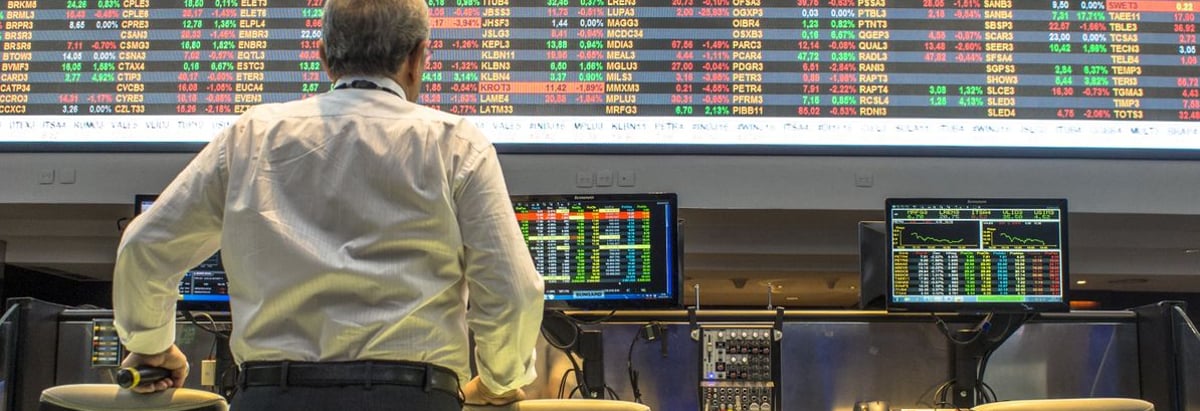Stock Analysis
- Malaysia
- /
- Capital Markets
- /
- KLSE:BURSA
Bursa Malaysia Berhad's (KLSE:BURSA) 3.4% loss last week hit both individual investors who own 41% as well as institutions

Key Insights
- The considerable ownership by retail investors in Bursa Malaysia Berhad indicates that they collectively have a greater say in management and business strategy
- The top 8 shareholders own 51% of the company
- Institutional ownership in Bursa Malaysia Berhad is 38%
Every investor in Bursa Malaysia Berhad (KLSE:BURSA) should be aware of the most powerful shareholder groups. We can see that retail investors own the lion's share in the company with 41% ownership. That is, the group stands to benefit the most if the stock rises (or lose the most if there is a downturn).
While institutions who own 38% came under pressure after market cap dropped to RM6.8b last week,retail investors took the most losses.
In the chart below, we zoom in on the different ownership groups of Bursa Malaysia Berhad.
See our latest analysis for Bursa Malaysia Berhad
What Does The Institutional Ownership Tell Us About Bursa Malaysia Berhad?
Many institutions measure their performance against an index that approximates the local market. So they usually pay more attention to companies that are included in major indices.
We can see that Bursa Malaysia Berhad does have institutional investors; and they hold a good portion of the company's stock. This implies the analysts working for those institutions have looked at the stock and they like it. But just like anyone else, they could be wrong. It is not uncommon to see a big share price drop if two large institutional investors try to sell out of a stock at the same time. So it is worth checking the past earnings trajectory of Bursa Malaysia Berhad, (below). Of course, keep in mind that there are other factors to consider, too.
We note that hedge funds don't have a meaningful investment in Bursa Malaysia Berhad. The company's largest shareholder is Capital Market Development Fund, with ownership of 19%. In comparison, the second and third largest shareholders hold about 11% and 11% of the stock.
On further inspection, we found that more than half the company's shares are owned by the top 8 shareholders, suggesting that the interests of the larger shareholders are balanced out to an extent by the smaller ones.
While it makes sense to study institutional ownership data for a company, it also makes sense to study analyst sentiments to know which way the wind is blowing. Quite a few analysts cover the stock, so you could look into forecast growth quite easily.
Insider Ownership Of Bursa Malaysia Berhad
While the precise definition of an insider can be subjective, almost everyone considers board members to be insiders. Company management run the business, but the CEO will answer to the board, even if he or she is a member of it.
I generally consider insider ownership to be a good thing. However, on some occasions it makes it more difficult for other shareholders to hold the board accountable for decisions.
Our most recent data indicates that insiders own less than 1% of Bursa Malaysia Berhad. But they may have an indirect interest through a corporate structure that we haven't picked up on. It's a big company, so even a small proportional interest can create alignment between the board and shareholders. In this case insiders own RM25m worth of shares. It is always good to see at least some insider ownership, but it might be worth checking if those insiders have been selling.
General Public Ownership
The general public, who are usually individual investors, hold a 41% stake in Bursa Malaysia Berhad. While this group can't necessarily call the shots, it can certainly have a real influence on how the company is run.
Private Company Ownership
It seems that Private Companies own 19%, of the Bursa Malaysia Berhad stock. Private companies may be related parties. Sometimes insiders have an interest in a public company through a holding in a private company, rather than in their own capacity as an individual. While it's hard to draw any broad stroke conclusions, it is worth noting as an area for further research.
Next Steps:
It's always worth thinking about the different groups who own shares in a company. But to understand Bursa Malaysia Berhad better, we need to consider many other factors. For instance, we've identified 1 warning sign for Bursa Malaysia Berhad that you should be aware of.
If you are like me, you may want to think about whether this company will grow or shrink. Luckily, you can check this free report showing analyst forecasts for its future.
NB: Figures in this article are calculated using data from the last twelve months, which refer to the 12-month period ending on the last date of the month the financial statement is dated. This may not be consistent with full year annual report figures.
Valuation is complex, but we're here to simplify it.
Discover if Bursa Malaysia Berhad might be undervalued or overvalued with our detailed analysis, featuring fair value estimates, potential risks, dividends, insider trades, and its financial condition.
Access Free AnalysisHave feedback on this article? Concerned about the content? Get in touch with us directly. Alternatively, email editorial-team (at) simplywallst.com.
This article by Simply Wall St is general in nature. We provide commentary based on historical data and analyst forecasts only using an unbiased methodology and our articles are not intended to be financial advice. It does not constitute a recommendation to buy or sell any stock, and does not take account of your objectives, or your financial situation. We aim to bring you long-term focused analysis driven by fundamental data. Note that our analysis may not factor in the latest price-sensitive company announcements or qualitative material. Simply Wall St has no position in any stocks mentioned.
About KLSE:BURSA
Bursa Malaysia Berhad
An exchange holding company, provides treasury management, and management and administrative services.

